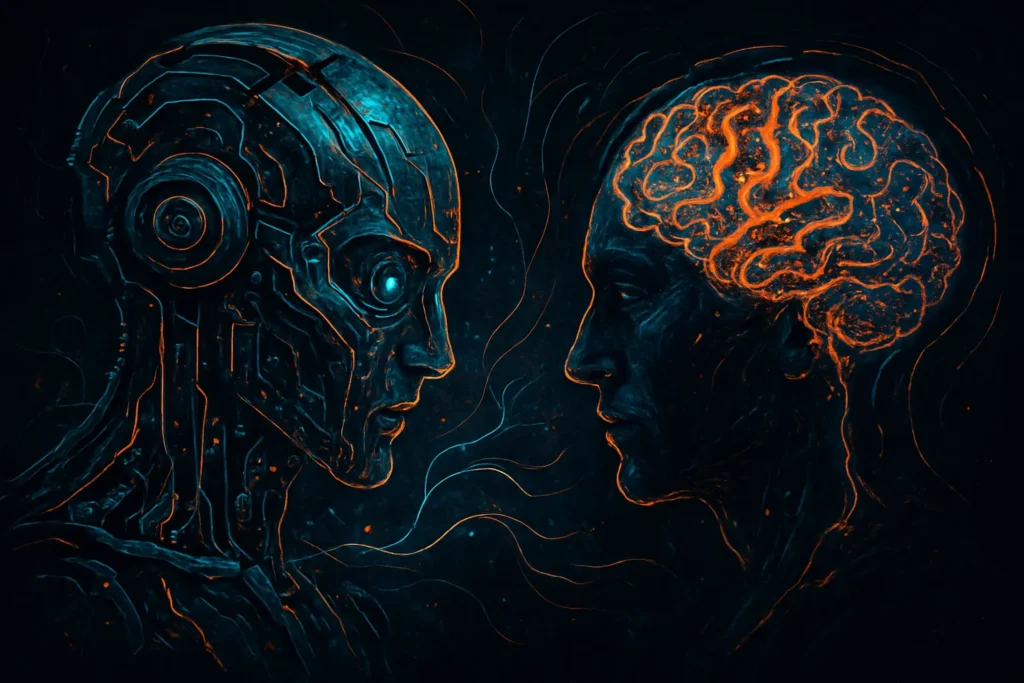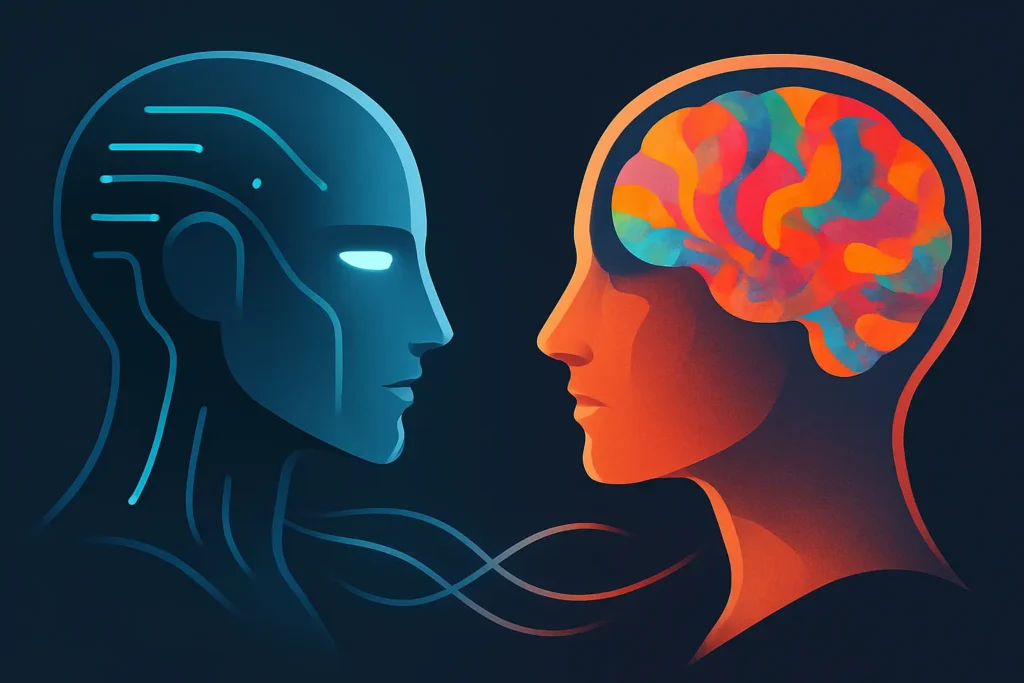Computer Science and Philosophy
The Computer Science and Philosophy course at Oxford University is designed for students who are intellectually curious about both the technical aspects of computing and the philosophical questions raised by technology, especially in areas such as Artificial Intelligence (AI). This course brings together two disciplines that have a strong historical connection, dating back to figures like Alan Turing, who bridged the worlds of computing and philosophy through his groundbreaking work on computation and intelligence.
The course offers a chance to study Computer Science, focusing on topics like programming, algorithms, and computational theory, alongside Philosophy, which explores fundamental questions about logic, mind, ethics, and reality. Students will not only develop technical expertise in computing but also engage in critical thinking about how computers, AI, and other technological advancements affect our understanding of human nature and society.
As computing becomes increasingly involved in various aspects of life, from social media to politics and economics, the course explores how we should ethically respond to these changes, including the implications of AI in decision-making, privacy, and automation.
Course Overview
- UCAS Code: IV15
- Entrance Requirements: AAA, including Mathematics, with the A in Mathematics, Further Mathematics, or Computer Science
- Course Duration: 3 years (BA) or 4 years (MCompSciPhil)
Subject Requirements
- Required: Mathematics
- Recommended: Further Mathematics
- Helpful: Not applicable
Additional Course Requirements
- Admissions Test: Mathematics Admissions Test (MAT)
- Written Work: None
Admissions Statistics (2022–24 average)
- Interviewed: 32%
- Successful: 10%
- Intake: 12 students per year
- Note: Statistics are based on the three-year average for 2022–24
A Typical Week
The course is structured with a combination of lectures, tutorials, and practical sessions.
- Year 1 and 2: Students can expect about eight lectures per week, which are large, university-wide classes that provide theoretical knowledge. Tutorials (where smaller groups of 2-4 students meet with a tutor) and practical sessions (which focus on hands-on computing skills) are also included. In tutorials, students engage in in-depth discussions and receive feedback on their work.
- Year 3 and 4: As the course progresses, students focus more on independent projects, including group projects in the second year and individual projects or a philosophy thesis in the fourth year.
By studying with leading academics in both Computer Science and Philosophy, students will be exposed to cutting-edge research and diverse perspectives, enhancing their academic experience.
You need more AI courses. Information, visit our Whatsoxford
Course Structure
The course offers both a 3-year BA and a 4-year MCompSciPhil (Master of Computer Science and Philosophy). Students apply for the four-year course and, at the end of the third year, decide whether to continue to the fourth year based on their performance. If students wish to continue to the fourth year, they must achieve at least a 2:1 classification in the third year.
Year 1
In the first year, the focus is on building a solid foundation in Computer Science and Philosophy:
Computer Science:
- Design and Analysis of Algorithms: Learn about the core computational techniques used to solve problems efficiently.
- Discrete Mathematics: Study the mathematical foundation of computer science, such as logic and set theory.
- Functional Programming: Learn to write code in a functional style, focusing on mathematical functions and recursion.
- Probability: Introduce probabilistic models and how they are used in computer systems, especially in areas like machine learning.
Philosophy:
- Alan Turing on Computability and Intelligence: Explore Turing’s work on artificial intelligence and his ideas on the limits of computation.
- General Philosophy: Cover foundational philosophical concepts such as metaphysics, ethics, and epistemology.
- Philosophical Topics in Logic and Probability: Engage with philosophical discussions about logic, probability theory, and their applications in reasoning and decision-making.
Assessment:
- Three Computer Science examinations
- Two Philosophy examinations
Year 2
In the second year, students deepen their knowledge of Computer Science and Philosophy, choosing from a broader range of subjects.
Computer Science:
- Algorithms and Data Structures: Learn advanced data structures (like trees and graphs) and algorithms that optimize tasks like searching and sorting.
- Group Design Practical: Collaborate with peers on a real-world computing project, practicing skills like software development and teamwork.
- Models of Computation: Explore the theoretical models of computation that define what can and cannot be computed by machines.
Philosophy:
- Early Modern Philosophy: Study the work of major philosophers such as Descartes, Spinoza, and Leibniz, whose ideas laid the groundwork for modern philosophy and the philosophy of mind.
- Ethics: Investigate key ethical theories, moral dilemmas, and their applications in the real world.
- Philosophy of Mind: Delve into the nature of consciousness, the mind-body problem, and the relationship between philosophy and cognitive science.
Assessment:
- Between four and six Computer Science examinations (depending on course choices)
- Philosophy exams on chosen topics
Year 3
The third year allows for further specialization in both Computer Science and Philosophy.
Computer Science:
- Options include Machine Learning, Computational Complexity, and Computer-aided Formal Verification (which ensures that programs behave as expected).
Philosophy:
- Topics like Ethics of Artificial Intelligence, Philosophical Logic, and Philosophy of Mathematics challenge students to consider the ethical implications and logical foundations of AI.
Assessment:
- Between five and nine examinations, including at least three Philosophy exams
Potential Philosophy thesis
Year 4
The fourth year is an opportunity for students to delve deeply into advanced topics in both fields.
Computer Science:
- Advanced options include Computational Game Theory, Concurrent Algorithms, and Graph Representation Learning.
- Students may also choose an optional computer science project to work on a substantial, real-world computing problem.
Philosophy:
- Advanced options and an optional philosophy thesis provide students the chance to explore complex topics like the nature of reality, logic, and language at a deeper level.
Assessment:
- Computer Science: One examination per course (or take-home exercise)
- Philosophy: Each course is assessed with a three-hour written exam and a 5,000-word essay
Academic Requirements
- A-levels: A*AA, including Mathematics. If Further Mathematics is taken, at least Grade A is required.
- International Baccalaureate: 39 points, including 766 at Higher Level (7 in Higher Level Mathematics).
- Other Qualifications: Equivalent international qualifications are accepted; please refer to Oxford’s website for further details.
Admissions Test
- Test: MAT (Mathematics Admissions Test)
- Test Dates: October 22 & 23, 2025
Career Prospects
Graduates of this course are highly sought after in fields that require both technical expertise and philosophical inquiry, such as software development, AI ethics, cognitive science, and more. Graduates can pursue careers as software engineers, game developers, researchers, or technology managers in industries ranging from tech to finance, law, and education.
Fees and Financial Support
- Home Fees: £9,535
- Overseas Fees: £59,260
- Living Costs: Estimated between £1,425 and £2,035 per month
- Financial Aid: Oxford offers bursaries, loans, and scholarships for eligible students based on financial need.
College Life
Oxford’s colleges offer a close-knit community, where students can live, study, and relax. Colleges provide essential facilities such as libraries, dining halls, and student accommodation, fostering both academic success and social engagement.
This course offers a rich, interdisciplinary education at the crossroads of two intellectually stimulating fields, Computer Science and Philosophy, giving graduates the ability to approach technological issues with deep philosophical insight.


